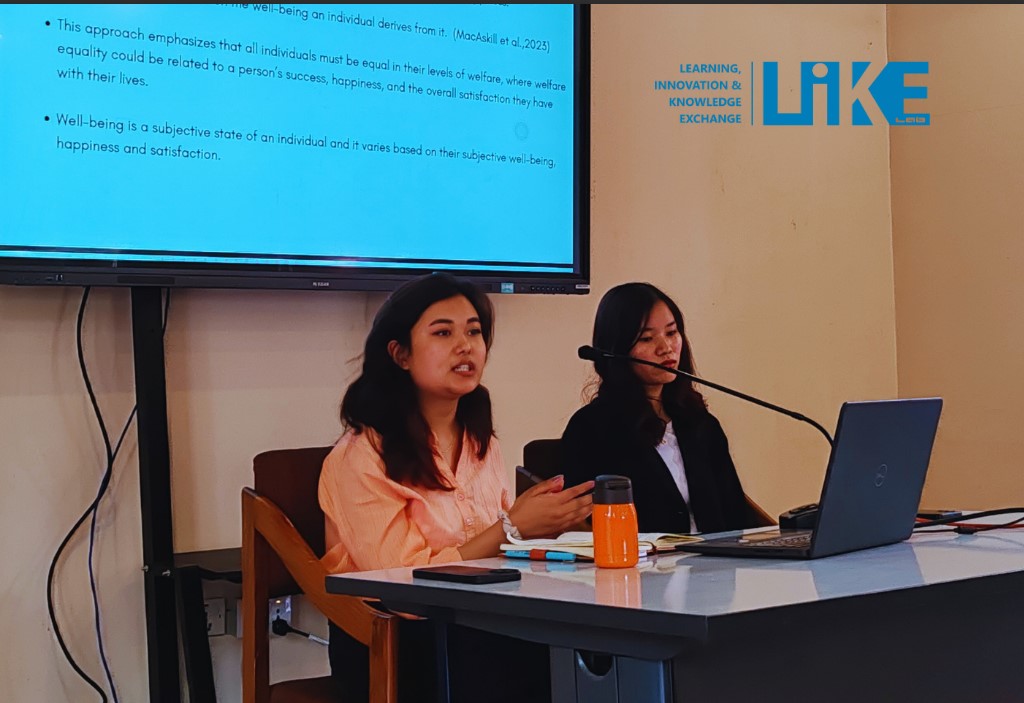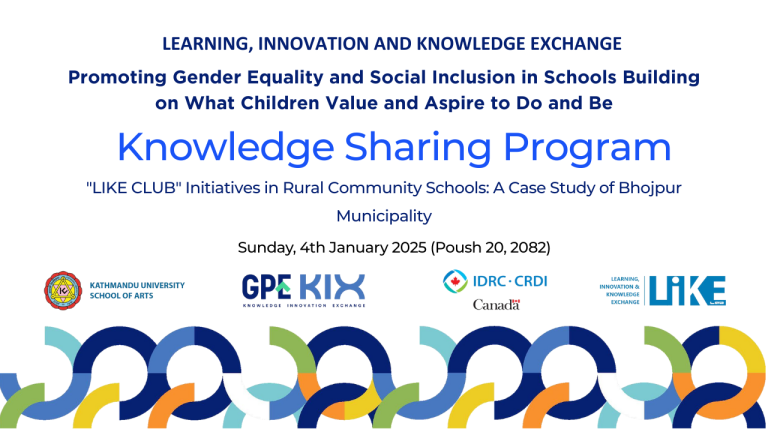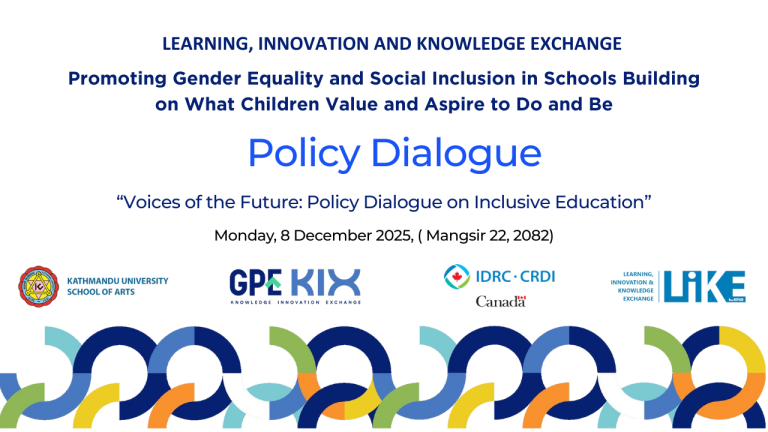
KATHMANDU, NEPAL – A research seminar at Martin Chautari, a social science research institution in collaboration with Learning, Innovation and Knowledge Exchange (LIKE) Lab, shed light on the challenges and gaps in resources for students with disabilities in Nepal. The seminar, part of Martin Chautari’s regular research series, took place this week and featured research presentations from research interns at LIKE Lab – currently pursuing Bachelors in Community Development at Kathmandu University School of Arts (KUSOA) exploring disability inclusion in education.
Presentations on Disability Education Challenges
Moderated by Ms. Birsana Shrestha, the session featured two research presentations. Ms. Barsha Manandhar, a Research Intern at LIKE Lab, presented her study titled “Exploring the Adequacy and Satisfaction of Resources in Achieving Well-being for Students with Disabilities: A Case Study of Bhojpur District”. Her research highlighted the limited availability of necessary resources and their impact on the overall well-being of students with disabilities.
Following this, Ms. Narayani Chaudhary, also a Research Intern at LIKE Lab, presented her study, “An Analysis of the Policy and Practice Gaps Regarding the Availability of Resources for Students with Disabilities: A Case Study of Disability Schools in Bhojpur District”. She discussed the discrepancies between government policies and their implementation in resource schools.
Key Discussions and Findings
- The Government of Nepal (GoN) categorizes disabilities into ten types, including physical, vision-related, hearing-related, and intellectual disabilities. Disabilities are also classified into four levels of severity: mild, moderate, severe, and profound, which determine the issuance of disability cards and financial support.
- The need for curriculum adaptation for Children with Disabilities (CWDs) remains a major challenge. While inclusive education is increasingly discussed, practical implementation is still lacking.
- The role of Organizations Working with Disabilities (OWDs) was highlighted, emphasizing their contribution to improving educational access.
- Presenters emphasized the importance of basic sign language proficiency, stating that such skills would have significantly aided their research and data collection.
- Representation in education was also discussed, with one of the teachers in a resource school being a Person with Disabilities (PWD), underscoring the importance of inclusivity in the teaching workforce.
- The United Nations Convention on the Rights of Persons with Disabilities (UNCRPD) follows a rights-based approach, advocating for the term Persons with Disabilities (PWDs) instead of terms like “specially abled” or “differently abled.” This aligns with the Sustainable Development Goals (SDGs) principle of “leave no one behind”.
- Research findings indicated no significant variation in responses based on caste, ethnicity, or gender, reinforcing that disability-related challenges transcend social categories.
Conclusion and Future Steps
The seminar concluded with reflections on the urgent need for more inclusive education policies, better curriculum adaptation, and improved accessibility for students with disabilities. Participants agreed that stronger implementation of existing policies and enhanced awareness about disability rights are crucial for fostering an inclusive educational environment in Nepal.
LIKE Lab and Martin Chautari continue to provide a platform for critical academic discussions, ensuring that such pressing issues remain at the forefront of research and policy dialogues.



